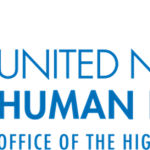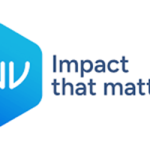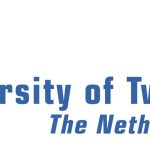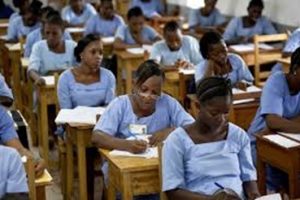The June/July 2023 issue of FORBES AFRICA was my favorite reading for the month as it touched on a subject close to my heart – agriculture. In a conversation with Dr Akinwumi Adesina (President, African Development Bank) a few years ago, he talked about the importance of agriculture (one of his ‘High 5’ pillars is ‘Feed Africa’) and the need for the youth in Africa to engage in the sector.
His famous words to me at the time were “we need to make agriculture sexy again so that the younger generation is motivated to enter this sector that can transform lives”.

His words were inspired not only by the historic impor- tance but also by the opportunities being created by innovations in the sector. It was therefore hearten- ing to read stories of young ‘agripreneurs’ from all over Africa who are, through agritech, trying to bring innovation into the agricultural ecosystem and create more efficient supply chains from seed to soil to market.
Agriculture in Africa, as in a number of Asian economies, is the most important sector contributing an average of 20% to 24% of the total Gross Domestic Product of sub-Saharan Africa (SSA). In absolute terms, there are about 33 million smallholder farms of which an estimated 35,000 commercial farm units are in South Africa; 5,000 to 7,000 of these farms produce 80% of the agricultural output in South Africa.
Farmers living in these smallholder farms (who largely use their hands for cultivation) contribute 70% of the food supply on the continent. Corre- spondingly, 65%-70% of Africans rely on subsistence agriculture for their livelihood.
Considering that Africa has most (about 60%) of the world’s remaining uncultivated arable land, the continent imports between $35 billion to $45 billion of food/agricultural products each year, since only about 10% of the available land is being cultivated. This stems from poor infrastructure development and therefore limited access to a large part of the 700 million hectares to 800 million hectares that can be cultivated. Other than land, other areas that need machinery, technology, infrastructure development and distribu- tion.
The most critical of all factors is easy access to low-cost finance and while financial institutions talk a good talk, very few provide reasonably-priced working capital to farmers. To make the continent self-suffi- cient, there is a need to invest almost $75 billion to $80 billion annually in the agricultural sector in Africa and there needs to be a concerted effort by policymaker to ensure that the banking sector comes to the party failing which, the continent, despite all its natural ad- vantages, will be unable to feed its growing population and alleviate poverty.
An important factor today, not just in agriculture, but across all industries, is educa- tion and relevant literacy across all demographics.
A few years after the launch of CNBC Africa in 2007, I started a thought leadership discussion on the Future of Education in SSA. Over the years, we have identified areas including redefining the purpose of education to make it more relevant to today’s times. Each year, we have had some brilliant minds from around the world join the deliberations to bring forth different global perspectives.
At the 2023 virtual sum- mit in July, we decided to unpack some of the current challenges, particularly relating to youth unemployment in Africa that has reached alarming levels. In many countries, more than 40% of fresh graduates do not find stable employment, even a year after finish- ing university. Part of the problem is the historic gap between the jobs being created and the number of students graduating from university. This problem, however, is being compounded by the transformation of existing jobs that require new skillsets, which ap- plicants do not have; nor can these be secured through unstructured staff development programs.
Owing to a very difficult history of colonization, the African education landscape is unique in its evolution reasonably-priced internet. SSA today has only 22% internet access compared to a global average of 63%. Furthermore, broadband access in Africa comes at a very high cost. In terms of afford- able pricing, India has the fifth lowest internet data rates in the world, with the cost of data at about 17 US cents per gigabyte. In comparison, South Africa at $2 per gigabyte is almost 12 times higher in price than India. The other important nuance is the low Gross Enrollment Ratio (GER) of 9.4% in Africa.
We live in a world today where artificial intel- ligence (AI) is responding to queries predicated on existing datasets. The debates are ongoing about the role of AI in all aspects of the future. No one can predict this accurately but it’s safe to say that if you can imagine something, coding, creativity and AI will find a solution.
It sounds surreal, but it is the best time to be alive, as we have witnessed more possibili- ties in the last few years than we have seen in decades of analog. ChatGPT, the new kid on the block, has challenged the education arena with so many dimensions and has created a fear of redundancies and whether machines will take over most jobs.
While these are genuine, short-term apprehensions, we do know that job displacements from what computers and machines can do are different from functions performed by human beings relating to creativ- ity, emotional intelligence, critical thinking, and problem-solving. As some jobs are being taken over by automation, more are being created that will continue to replace the older ones in the form of supervision of automated systems, programming, and maintenance.
As an exam- ple, during the internet era, new jobs relating to web design and development, digital marketing and cyber security, to name a few, were created. Now, with blockchain, AI and virtual reality, the world is opening up to workplace transformation, where coding, computer sciences and creativity will play an important role in creating job replacements in areas that we are yet to discover.
Another important dimension that was discussed during the Future of Education Summit was the impor- tant and underlying role of the economics of transfor- mation. Conservatively, unemployment costs for coun- tries run into billions of dollars of wasted resources each year. Global GDP could go up by trillions of dollars if unemployment is curtailed. On the other hand, the cost of reskilling is estimated to be between $10,000-$20,000 per new graduate joining a company, which is cumu- latively running into billions of dollars for employers. What this points to is that these costs to business can be optimized if there is closer collaboration and conversations between governments, academic institu- tions, and the corporate world.
In practical terms, the most transformative out- comes are going to come from industry where large employers will define their needs to educational in- stitutions. Colleges and universities need to adapt to these requirements by designing bespoke curriculum that will increasingly become industry-certified. The day is not far when human resources (HR) departments in organizations will be driven by professors who will articulate the needs of the establishment and act as an interface with academia.
The role of humanities will continue to increase critical thinking and creativity into sciences making up for the inherent deficiencies in machines. This blend of the two worlds of Arts and Sciences, which have always been historically segmented into silos, will provide the solutions in the future world of AI. In this context, one of the most interesting discussions was on the concept of “a factory within a university” or “a university within a factory”.
The possibilities are endless, and the deliberations were animated and intense, but the trend line was clear that for a progressive continent, investment in capacity building is in education so that the future generations of youth have equal opportunities as their peers in other parts of the world.
An important event for us at the ABN Group is the annual All Africa Business Lead- ers Awards (AABLA) ceremony that recognizes business leadership on the continent in vari- ous categories. Being an entrepreneur, I know from three decades of experience that building a business at the best of times is a challenge.
However, when you establish businesses in emerging markets like SSA, where you cannot take anything for granted, the skills, adaptability, perseverance and commitment needed requires leadership to be a lot more versatile and humane. To recognize these heroes from amongst us, we hosted the event for the sec- ond time at the Convention Centre in Sun City, South Africa, before a gathering of 450 business leaders from across Africa.
The event this year was attended by a large contingent of international business leaders from Nigeria, Kenya, Botswana, Namibia, Rwanda, the US and the UAE. We were also privileged to have in our midst, and perform- ing for our guests, two-time Grammy award- winner, Wouter Kellerman. An issue that limits greater participation is the restriction on business visas by South Africa.
Many guests from Nigeria and Rwanda were unable to trav- el for the AABLA. As we talk about increasing strategic relationships, inter-Africa trade and other collaborations, we are still unable to develop a basic agreement on cross-border travel for Africans. These barriers need to be lifted at the earliest to have meaningful people-to-people engagements for better understanding and social engagements that are essential for building a strong foundation for collaborations.
Source: Forbes Africa




















Add Comment